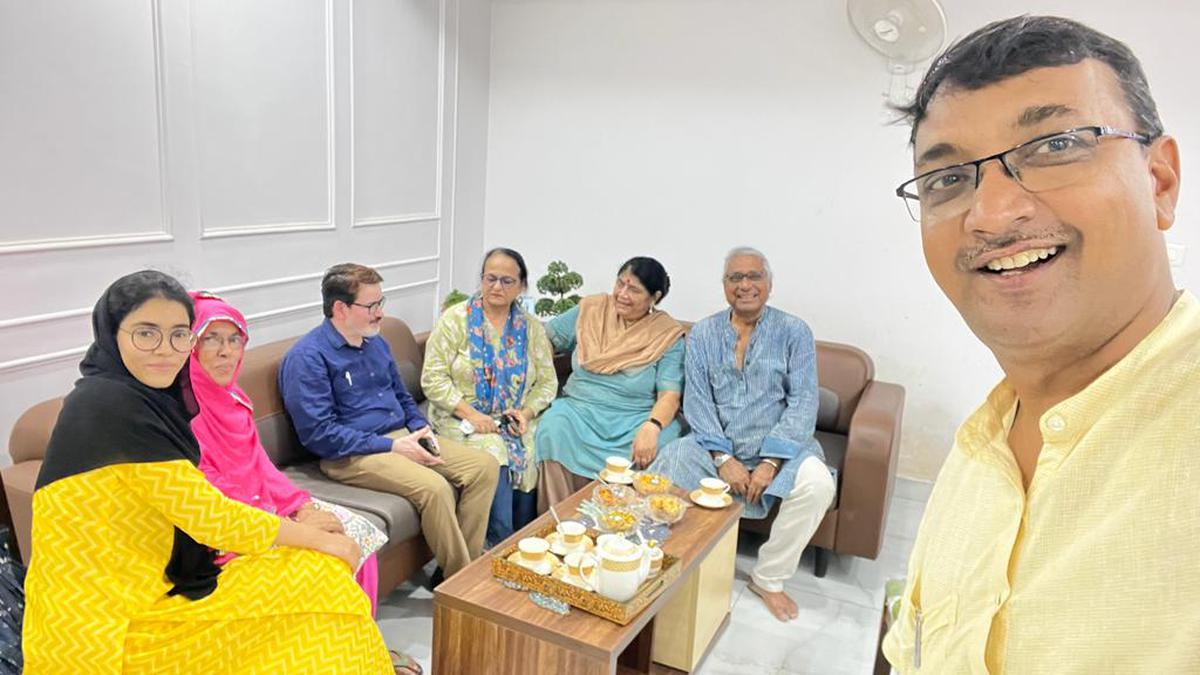
Bonding beyond boundary
The Hindu
Mere Ghar Aake To Dekho invites people of different religions, castes and sexuality, to each other’s homes to bridge the communal divide by demolishing stereotypes
From the looks of it, it was a casual Sunday out with family for the Mukherjees. Except that there was more to it. The seasoned academic duo Mridula Mukherjee and her husband Aditya Mukherjee, with a retired teacher from Springdales School and a social activist, headed to Jamia Nagar-Batla House, a part of the city where even some cab drivers are known to have refused to go.
The Mukherjees were there to meet Mohammed Akram, an unani doctor. What started as a reserved interaction soon evolved into a frank talk that covered everything from politics to the career of his young daughter, Mahin who is studying Law at Jamia Hamdard and wishes to take up legal aid and public policy later. “It was a fruitful interaction,” says Prof. Aditya.
The meeting was part of the ongoing Mere Ghar Aake To Dekho (Visit my home, Be my guest) campaign initiated by the Anhad Trust under which people are encouraged to invite or go across to homes of people of different religions and castes. Started on Independence Day, the campaign focusses on getting thousands of people across 26 states to meet each other on Gandhi Jayanti, October 2.
For the two historians — Ms. Mridula and Mr. Aditya —, who retired from Jawaharlal Nehru University, the visit was an eye opener. Unlike, many others, they had interacted with people across religion as part of their every day life. “But the people were usually from a similar socio-economic background and the interactions were bit like an echo chamber,” says Aditya. “The Muslims we interacted with were historians, scientists, activists including Prof Irfan Habib, Shabnam Hashmi, Gauhar Raza; first time we met someone from outside our social circle. It was enlightening,” he adds.
Says his wife Mridula, “We got to see a different facet of our society. Akram’s wife wears an abaya (kind of cloak). It took some persuasion for her to join us. His daughter revealed that the moment she steps out in an abaya for college she feels she is being watched. We could feel the angst of the family.”
The campaign’s aim — to introduce common people to each other, demolishing the barriers of ‘we’ and ‘they’ and understanding that at the end of the day, everybody’s concerns, dreams and challenges are the same.
Seasoned activist Shabnam Hashmi who is the spirit behind the move, says the campaign was launched in 27 states and hundreds of districts, cities, towns and villages simultaneously and within two months, nearly 100 organisations have joined in the effort with an estimated participation of 50,000 people.





















 Run 3 Space | Play Space Running Game
Run 3 Space | Play Space Running Game Traffic Jam 3D | Online Racing Game
Traffic Jam 3D | Online Racing Game Duck Hunt | Play Old Classic Game
Duck Hunt | Play Old Classic Game











